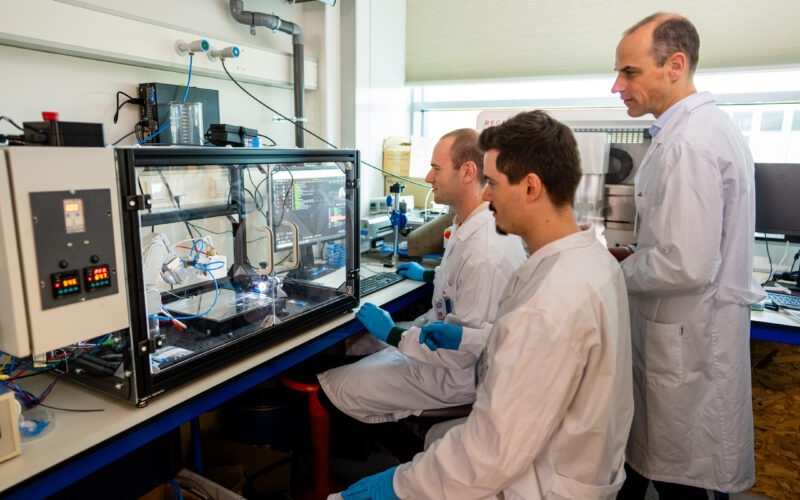Your own cells as medicine

In Utrecht, there is a lot of knowledge about ‘regenerative medicine’. In regenerative medicine, we use natural processes to help the body recover after damage. Partners at the Utrecht Science Park, such as Utrecht University, UMC Utrecht and the Hubrecht Institute work together in an interdisciplinary way to arrive at better and faster solutions. Regenerative Medicine in Utrecht (RMU) focuses on three themes: cardio-renal tissue regeneration, musculoskeletal tissue regeneration and stem cell and organoid biology. Read more here and watch the film about this unique collaboration.
How does regenerative medicine work?
Our body is always busy maintaining itself. Think of the skin that is renewed approximately every two to three weeks or the replacement of red blood cells and defense cells of the immune system. Stem cells play a very important role in this. In regenerative medicine we use natural processes to help the body recover after damage.
Research in regenerative medicine is important because it…
- contributes to the treatment of (chronic) diseases that can currently only be treated with medication.
- in the future it can be an alternative to heavy and expensive treatments such as dialysis.
- can help with organ recovery, for example after a heart attack, nerve damage, liver damage or bone fractures that do not heal by themselves.
- can help with healthy aging and thus reduce healthcare costs.
- can accelerate recovery and thus shorten hospital stays.
- in the future it may offer treatments for diseases for which there is currently no therapy.
- in the future it may offer an alternative to donor organs.
Sources: Utrecht University and UMC Utrecht
Watch the film below about the unique collaboration at the Utrecht Science Park on the theme of “Regenerative Medicine”.